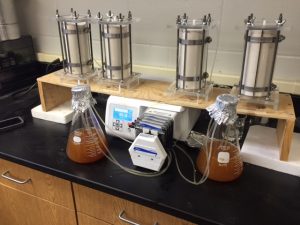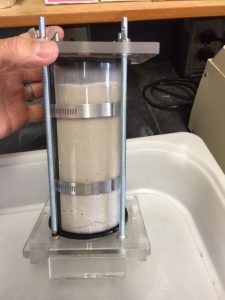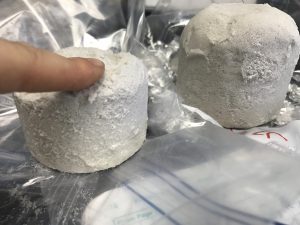Project title: Application of Microbial Induced Calcite Precipitation to Stabilize Florida High-Organic Matter Soils for Roadway Construction
Funded By: Florida Department of Transportation
Several areas of Florida are underlain by soils with high organic matter content. Construction of roadways on these soils is often problematic because these soils typically have low shear strengths and high compressibility. Over time, these soils continue to decompose and subside/creep from stresses imposed by the roadway embankment, pavement structure and truck loads. In recent years, Microbial Induced Calcite Precipitation (MICP) has been significantly developed. For example, the metabolic activity of Bascillus pasteurii and Sporosarcina pasteurii (ureolytic microbes commonly found in sand) raises local pH which in turn causes Ca2+ and HCO3– ions, if present, to precipitate CaCO3 (DeJong et al. 2006). The calcium carbonate can cement mineral grains together, resulting in a soil of greater strength. The overall goal of this project is to develop and test this biologically enhanced soil-stability technology for use in these Florida high organic matter soils.
Our testing apparatus:
A cemented product:


